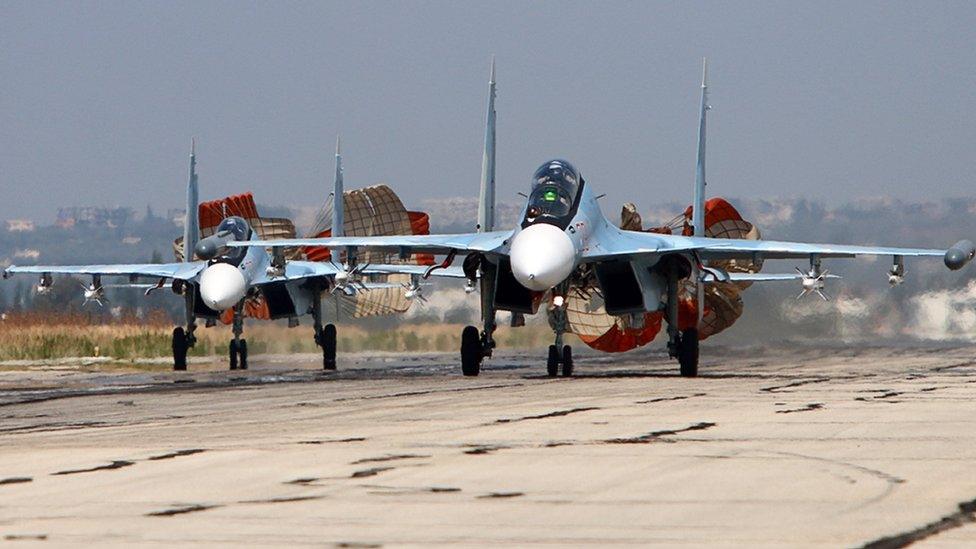Tony Blair: Help groups fighting Islamists in Syria
- Published
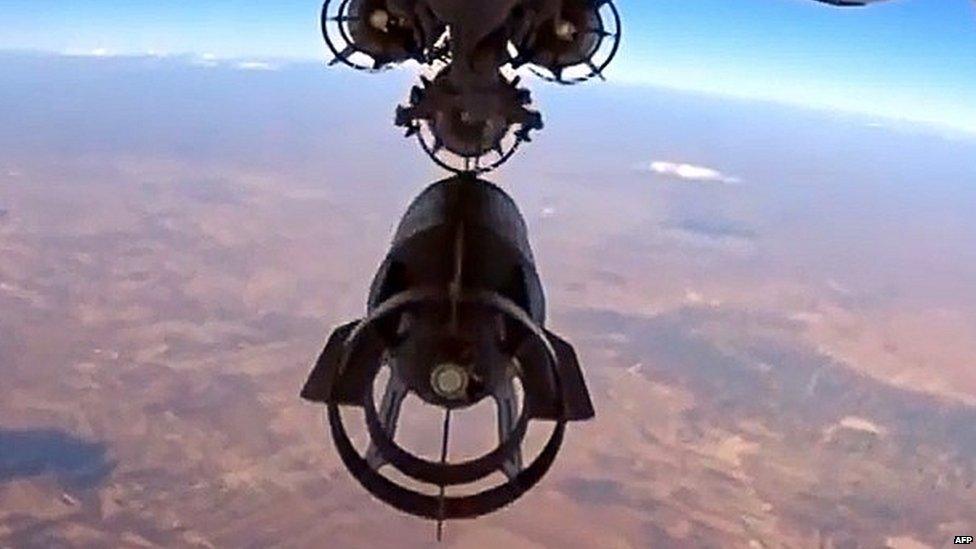
Russia said it continued its airstrikes against Islamic State targets on Tuesday
Tony Blair has said the international community must be prepared to do "everything and more" to support those fighting Islamist militants in Syria.
The ex-UK prime minister told the BBC Syria had "virtually disintegrated" but there would have to be a political settlement there, involving Russia and other allies of the Assad regime.
But the West must be able to negotiate from a "position of strength".
David Cameron has urged more help for the "legitimate opposition" in Syria.
It comes as the Russian defence ministry said it flew 20 air sorties in Syria on Tuesday, striking 12 targets of the so-called Islamic State.
A US-led coalition has been conducting air strikes against IS in Syria and Iraq since September last year, which rights groups say have also caused civilian deaths.
Syria's conflict between President Bashar al-Assad and various rebel groups began in 2011. It has left more than 250,000 dead and about half the country's population displaced.
Speaking in New York after making a speech at the 9/11 museum about jihadist ideology, Mr Blair said it was "not acceptable that they (Russia) attack parts of the opposition that we see as acceptable, and who represent a majority of people in Syria" - an accusation strongly denied by Moscow.

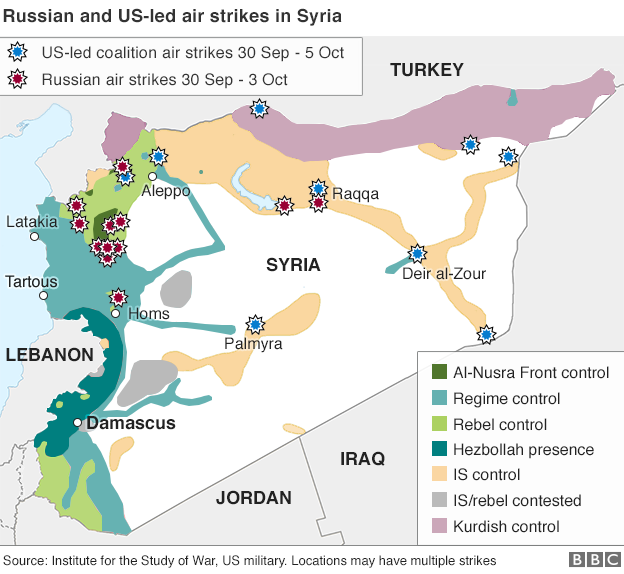
Where key countries stand: Who is backing whom
Why? What? How? Five things you need to know about Russia's involvement
What can Russia's air force do? The US-led coalition has failed to destroy IS. Can Russia do any better?

Russian actions in Syria, Mr Blair argued, should be seen as an attempt to secure "leverage" ahead of negotiations about the future of the country and he said the US, UK and its allies could be doing more to shape the dynamics on the ground.
"We have got to do everything we can and more to support those groups who are fighting them on the ground because you can't defeat them by air power alone. That is clear," he said.
"What is important for the west, is that we are very clear that we are going to obtain our own leverage to have an outcome that is fair and reasonable."
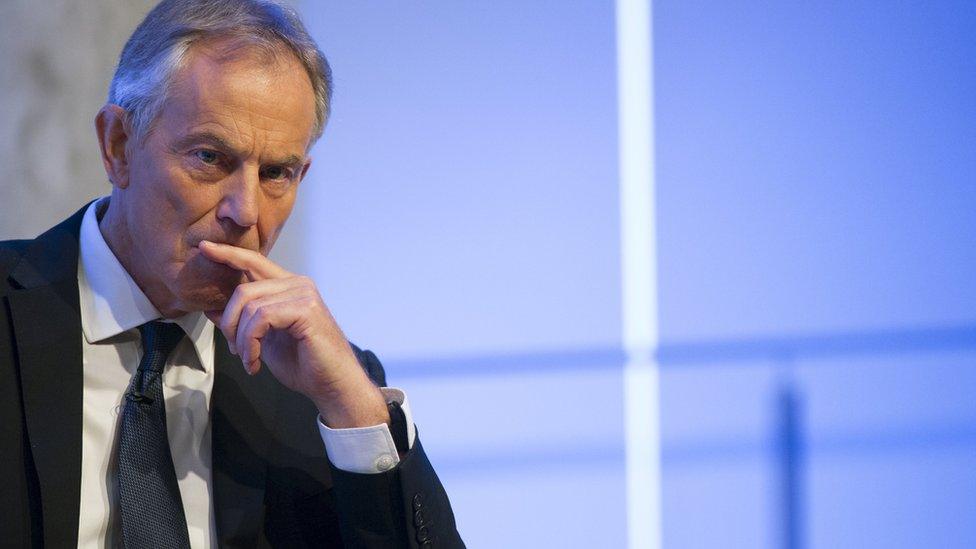
Tony Blair says a wave of terrorism may arise out of the current conflict in Syria
Mr Blair, who stepped down as a Middle East envoy earlier this year, said despite some progress in confronting Islamic State, the organisation was "far too powerful" and it was in the UK's direct national interest to throw its weight behind military and diplomatic efforts to rid Syria of its presence.
"It is not simply to do with a struggle that is in a faraway country," he added. "The truth is now we have hundreds of thousands of refugees coming from Syria to Europe.
"The first wave of this will be refugees. The second wave, I fear, will be terrorism and problems of terrorism arising out of what is happening in Syria.
"And we have both got to deal with that problem which is the outcome of the crisis in Syria and to try and resolve the actual crisis in Syria itself."
Also speaking on Tuesday, current UK Prime Minister David Cameron rejected claims that the UK would be prepared to back extremist groups opposed to the Assad regime and said he was willing to try again to work with Russia and Iran to identify an administration which could deliver a peaceful future for the country.
"We are working with our allies - and frankly we have tried to work in the past with the Russians, with the Iranians and with others, and we must try again - to identify a team of leaders and a structure where Sunni, Christian, Alawite, Kurd can all feel that they will be properly looked after in Syria."
- Published7 October 2015
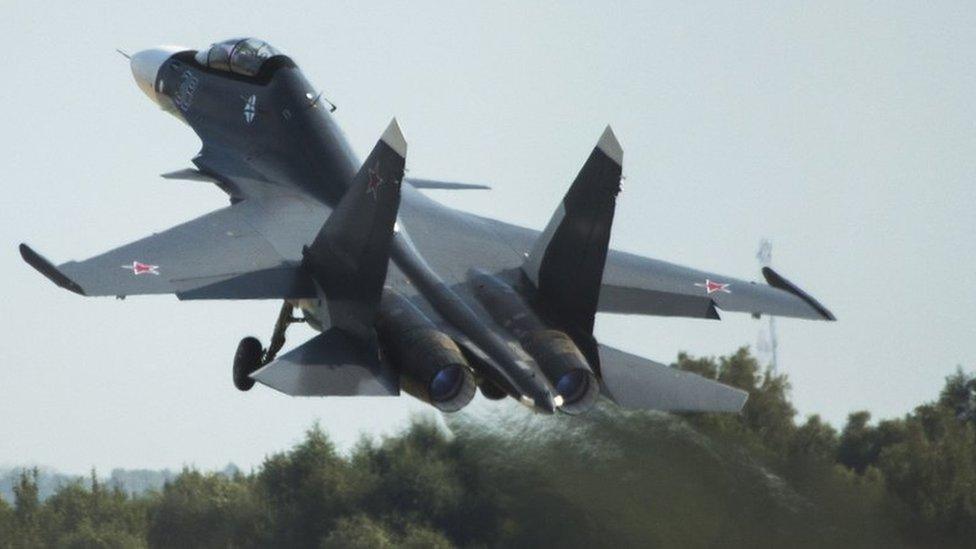
- Published1 October 2015
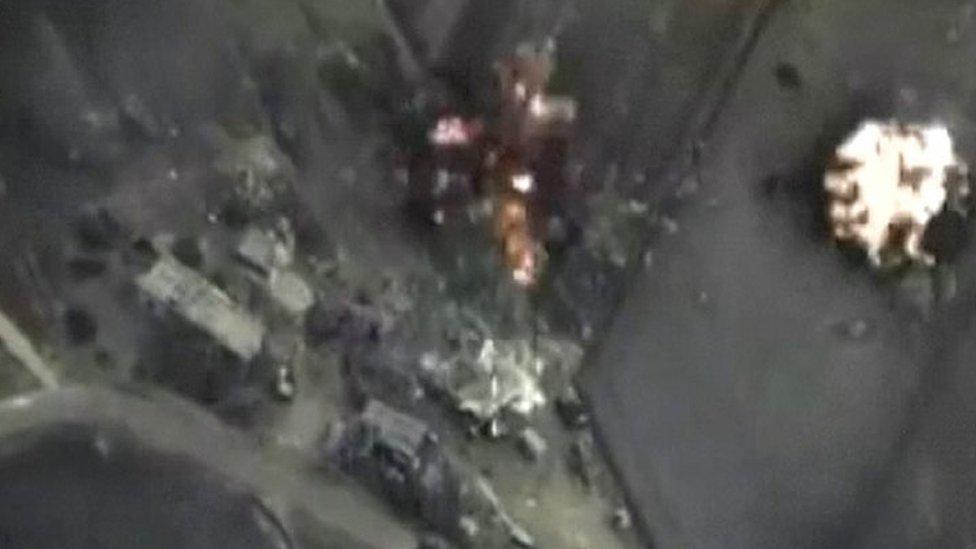
- Published6 October 2015
